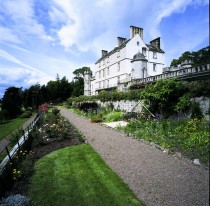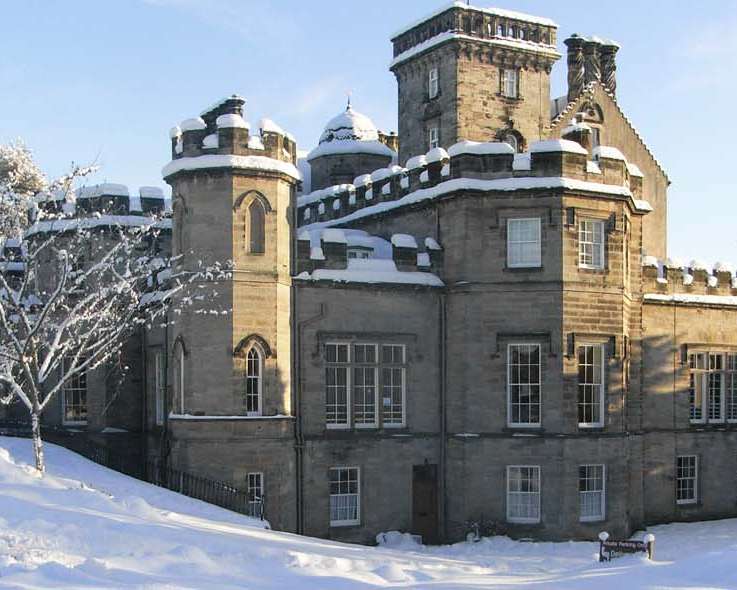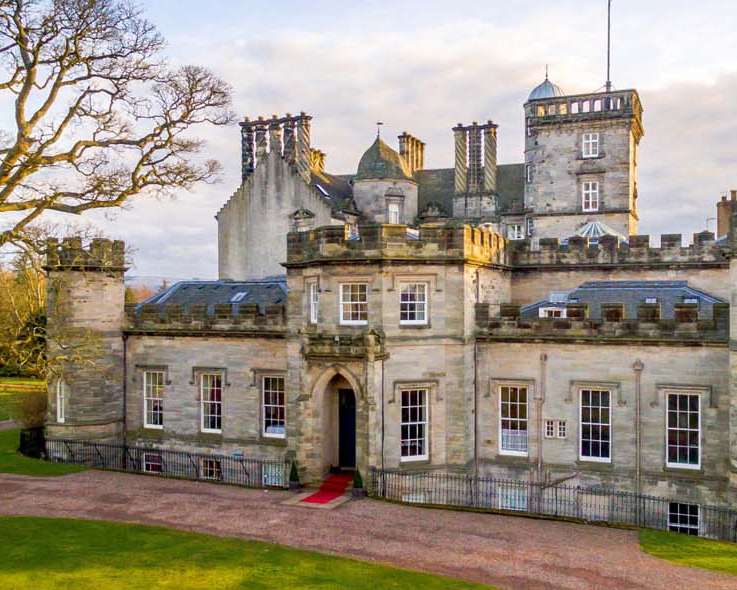
(Based on an interview with Toby Subiotto, Head Gardener)
At Winton House we aim to manage and develop our gardens and grounds sustainably; we grow a lot of our own plants, encourage wildlife, recycle what we can – water, pots and compost – and minimize the use of pesticides.
Planting
Winton’s plant stock is developed by division and potting on. Some 1,000 plants are cultivated annually from cuttings and seeds. We try to use peat-free compost as much as possible.
Nearly all our bedding plants are grown from seeds or cuttings as are many other plants like bulbs. These include lilies, crocuses, irises, tulips, sweet peas, marguerites, geraniums, salvias and fuchsias. Some shrubs are also propagated from cuttings.
Other plants are sourced from local nurseries and, as much as possible, from Scottish nurseries, reducing our carbon miles.
The garden and planting is done so that it is as wildlife-friendly as possible. Some areas are left wild and not over-cultivated or kept too tidy. Consequently, the garden attracts butterflies, ducks, herons, geese, buzzards, woodpeckers, fieldfares, house martins and swallows, and even partridge, hares, roe deer and badgers.
We have areas of natural and old coppiced woodland areas, open meadow and grassland, as well as a range of aquatic and marginal habitats which are home to dragonflies, toads, frogs, coots, moorhens, herons and cormorants.
Recycling
Water is collected and recycled using water butts from our glasshouse and poly tunnel roof, and used to water the plants that we propagate.
We recycle all plastic pots, seed trays and larger pots, wherever possible.
To keep green garden waste to a minimum, we either leave plant cuttings on the beds, which is mulched over or left over winter, or take away cuttings for composting.
Winton’s gardens are fertilized with up to 40 tons of mulch a year from a local mushroom farm and from cattle on an Estate farm. This is composted by being mixed with bark and green chippings from the Estate woodlands for 2 years, then spread on the beds.
Winton’s approach to composting increases fertility, ‘opens up’ our heavy clay soil and reduces annual weed germination. It also conserves moisture and reduces the need for irrigation during our frequent hot spells (yes, we get some and the garden is predominantly south-facing!).
Chemicals
Keeping the soil healthy and productive reduces the need for pesticides. Weed killer is only ever applied to paths and wall edges when deemed necessary. Chemical usage has dramatically been reduced in recent years. Borders are hand weeded. Wild areas are strimmed twice each year.
Chemical spraying is only used reactively when required to control pests under glass and not applied as a preventative measure.
Cut flowers from the garden are used for many of the flower arrangements in the House; these are created by Hazel Parker, Winton’s multi-talented Head Housekeeper.
Culinary herbs, fruit, such as apples, pears, raspberries, strawberries, blackcurrants and redcurrants, and vegetables grown in the garden are used in the House and by staff. Some preserves and chutneys are also made.
Fuel
Our petrol driven ride-on mower has been converted to run on LPG saving a huge amount on our annual fuel bill. The extensive lawns take 2 days to cut during the summer!
Other machinery runs either on a 2 stroke petrol mix or more efficient diesel.
Related Posts
December 15, 2021
Merry Christmas from Team Winton!
February 6, 2017

